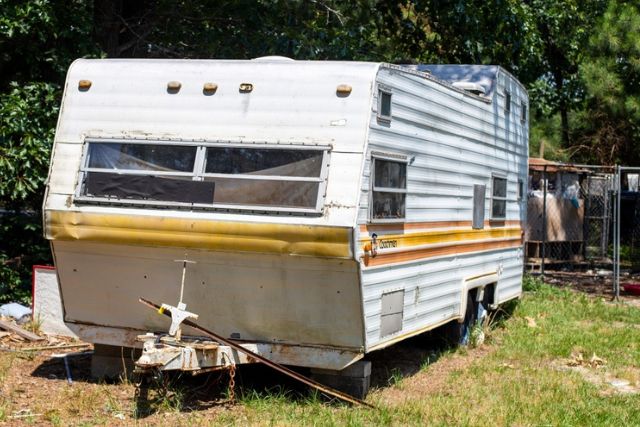After raised community concerns and to mitigate the housing crisis and cost of living, Sunshine Coast Council has waived permit fees for those living in temporary housing and struggling financially.
Under the local law, a tent, car, caravan or mobile home on a private property is considered temporary housing.
The fee will only be waived if applicants can show that due to extenuating circumstances they are finding it difficult to pay the fee.
The move came after the council received about 30 letters and emails from a range of concerned residents providing feedback on the application of the local law.
Concerns further related to the approval fee and its effect on disadvantaged members of the community.
Service excellence and customer service portfolio councillor Christian Dickson said the council understood rising housing pressures had placed a burden on many local families.
“Some people have no choice but to live in a temporary home until their circumstances improve,” Cr Dickson said.
“Prior to today’s decision, the $514 application fee to apply for a temporary home permit may have made it difficult for people struggling to make ends meet.
“Waiving the fee for those who are experiencing financial hardship or other legitimate circumstances such as family or domestic violence will help them gain approval for temporary housing sooner.”

The fee change required the council to alter the 2022-2023 Register of Cost-Recovery Fees and Commercial Charges, which councillors agreed to at last week’s ordinary meeting.
The waived fees came into effect on February 24 until June 30.
During the meeting, Division 10 Councillor David Law called on council CEO Emma Thomas to look at working the waived fees into the next budget.
Approval duration depends on the type of temporary home:
- less than three months for a tent;
- six months for a car; and
- 18 months for a bus, caravan or mobile home.
Where more time is required, the fee to reapply for a temporary home approval is $392.
However, where council has previously waived the fee, it will again take into account any extenuating circumstances.
Cr Dickson said no two cases were the same and council would carefully consider the circumstances of each application.
“I’m not going to pretend to know all the hardships people are going through, and the local law and application fee may be preventing people having a safe place,” Cr Dickson said.
“Our first priority is to ensure everyone – including our most vulnerable people – is safe.
“While it is important we support people who need to access a temporary home, council also has obligations to protect and manage health and safety, the environment and reduce impacts on nearby properties and public spaces.
“This includes ensuring temporary homes are not placed in known bushfire or flood-prone areas; waste, sewage and grey water are disposed of safely; and the temporary home is safe for use and the occupants have access to, or a plan for, kitchen, bathroom and toilet needs.”
SUBSCRIBE here now for our FREE news feed, direct to your inbox daily.
Cr Dickson said council officers will make this as easy as possible for applicants, understanding many may not have online access and may be facing significant challenges.
“Staff want to sit with them, make sure they are safe, take them through the process and respond with compassion,” he said.
“Importantly, the approval process also enables officers to connect people to help and services when additional support is needed.
“While this is a significant step in the right direction, there is much more work to do and we are continuing to look at mechanisms across council to find solutions.”
Related story: Plan of attack: how housing crisis is being addressed
Approval is not required for a temporary home on a vacant property when occupied for less than two weeks per year or occupied for less than four weeks in any 52-week period on a property with a dwelling house.
In these instances, waste materials, including grey water, are not to be left on site and the temporary home is to be located at the rear of the dwelling house.
However, if the temporary home will be in place for longer periods, or if it cannot meet the conditions, approval will be required.
Information on council’s website can assist applicants in understanding and navigating the approval process.





